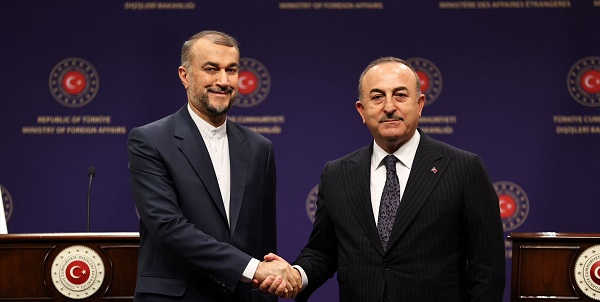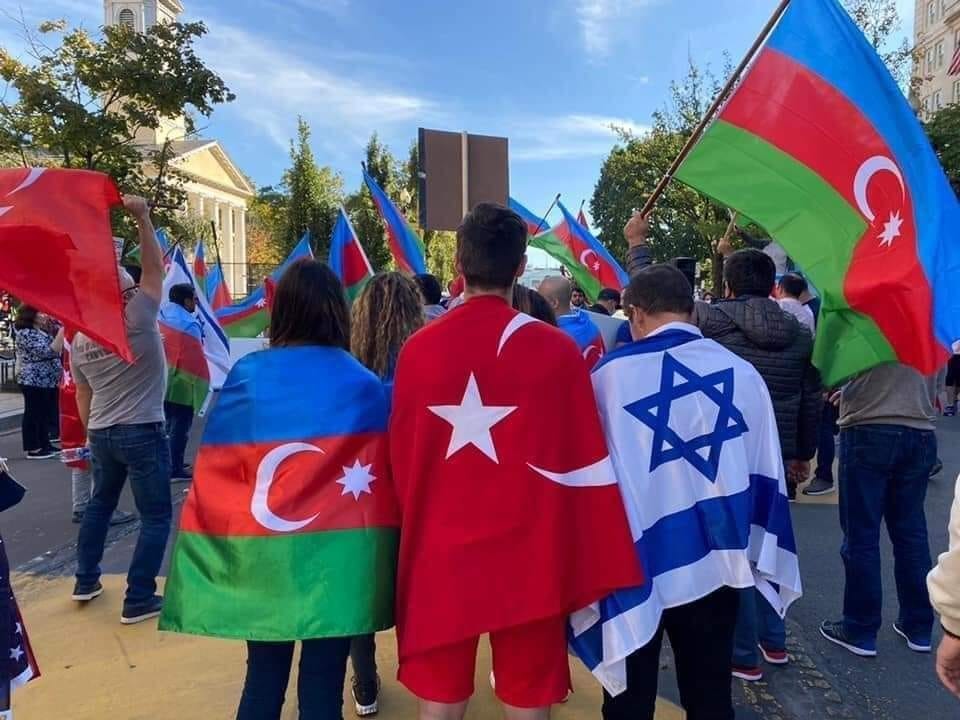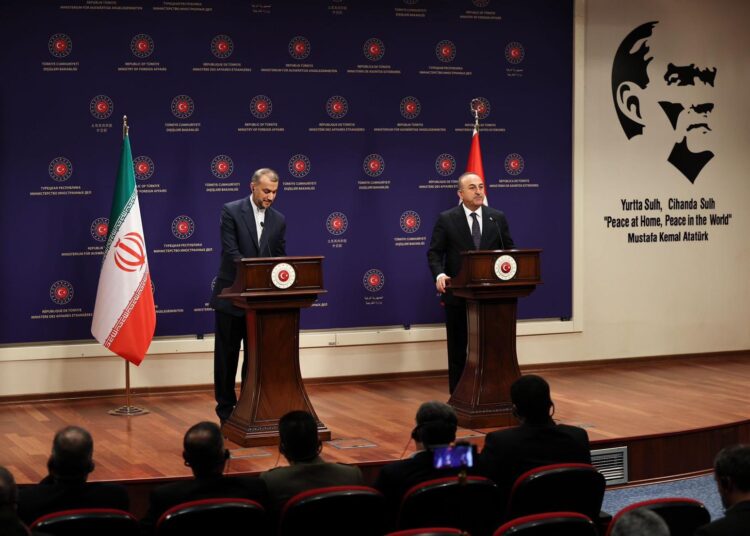Levent Kenez/Stockholm
Iranian Foreign Minister Hossein Amir Abdollahian stated at a press conference on Wednesday that Israel’s presence in the Caucasus is a threat to peace in the region, following a meeting with his Turkish counterpart, Mevlüt Çavuşoğlu, to whom he paid a visit to show solidarity with Turkey due to devastating earthquakes that struck the country on February 6.
Beginning his speech by applauding March 8, International Women’s Day, Abdollahian said women are the main element of society in Iran.

Stating that both countries should be sensitive to and careful about security in the region, the Iranian minister claimed that the most important reason for the crisis in the Caucasus was the presence of Israel in the region.
“We see the presence of the Zionist regime in the region as a major threat to peace and stability. Wherever this regime is involved, there has been insecurity and crisis. The Islamic Republic of Iran warns the parties to pay close attention to the behavior of the Zionist regime. They should not allow its presence in the region,” said the Iranian minister.
The basis of what Abdollahian implicitly expressed is no doubt the growing cooperation between Israel and Azerbaijan, a close ally of Turkey. Iran sees Israel’s presence in Azerbaijan as part of its encirclement by the West. Tehran has long claimed that Israel is conducting intelligence operations by using Azeri elements in Iran and that it has succeeded in carrying out some sabotage and assassinations.
Israel had maintained a balance in relations with Armenia during the Second Nagorno-Karabakh War in 2020; however, it at the same time provided tacit support to Azerbaijan. A significant number of the military vehicles and drones that led Azerbaijan to victory were purchased from Israel. Armenia protested this support by withdrawing its ambassador, whom it had appointed only two weeks earlier, in October 2020. In addition, during celebrations held after Azerbaijan’s victory, some Azerbaijanis waved the Israeli flag along with the flags of Azerbaijan and Turkey.

Turkish media reported that according the Stockholm International Peace Research Institute (SIPRI), 26.6 percent of arms sales to Azerbaijan between 2011-2020 were from Israel. It is estimated that 17 percent of Israel’s total arms sales are directed to Azerbaijan. Israel is Azerbaijan’s third largest trading partner with exports of $1.33 billion, meeting 40 percent of Israel’s oil needs. Israel was the source of 69 percent of Azerbaijan’s arms purchases between 2016 and 2020.
Another issue that came to the agenda during the Iranian minister’s visit is Tehran’s insistence on playing an active role in the normalization of relations between Turkey and Syria.
The first high-level bilateral contact between Ankara and Damascus since the civil war that started in Syria in 2011 took place on December 28, 2022. Turkish Defense Minister Hulusi Akar and National Intelligence Organization (MIT) Undersecretary Hakan Fidan met with Syrian Defense Minister Ali Mahmoud Abbas and head of intelligence Ali Mamlouk, hosted by Russian Defense Minister Sergei Shoigu.
Çavuşoğlu said he told his Iranian colleague that there was no problem with Iran’s participation in the next meeting that will be held between foreign ministers, adding that the only mechanism for Syria that exists at the moment is the Astana Process, the quartet platform comprising Turkey, Syria, Iran and Russia.
Noting that work for a Turkish-Syrian-Russian foreign ministers meeting is under way, Çavuşoğlu said, “We’re planning to have all four parties involved. The Russians offered to hold a meeting at the technical level for the preparation of a possible foreign ministers meeting for next week. We’ll send our deputy minister to Moscow. The Iranian side will also participate,” he said.












